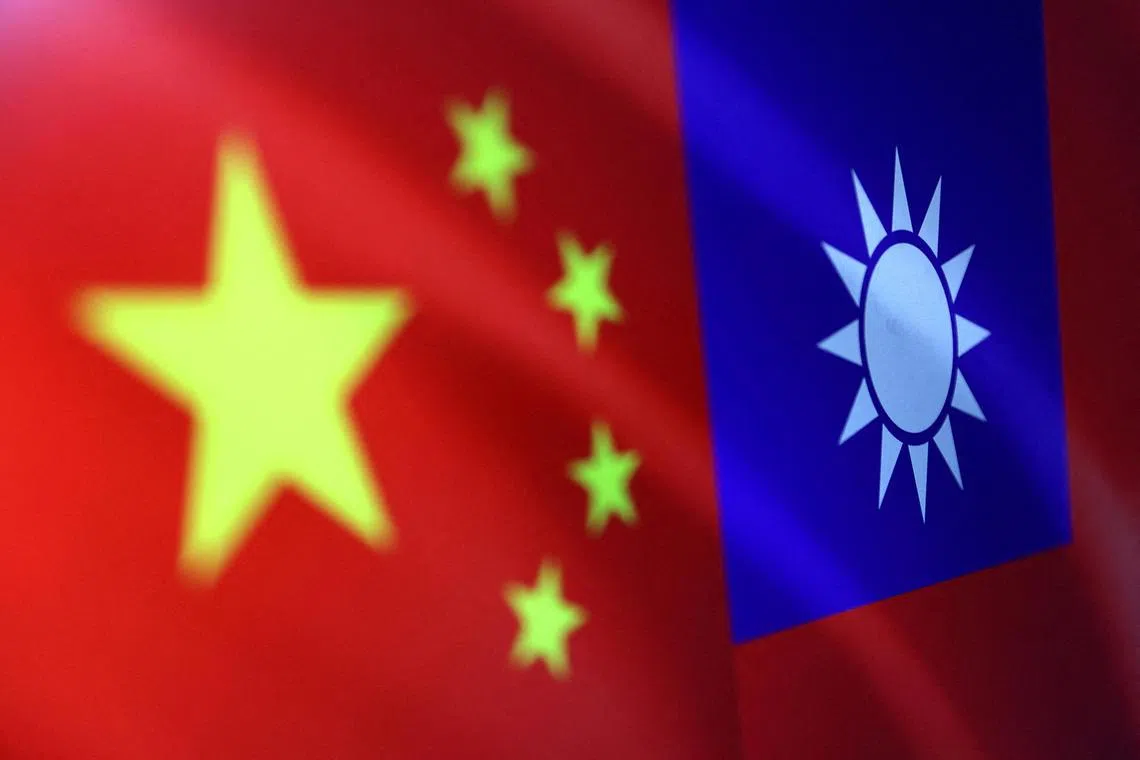Shangri-La Dialogue
Ukraine war has not changed China’s strategy for reunification with Taiwan: Report
Sign up now: Get ST's newsletters delivered to your inbox

China views Taiwan as a renegade province to be reunited by force if necessary.
PHOTO: REUTERS
SINGAPORE - There is no evidence that Russia’s invasion of Ukraine has changed China’s thinking on the timescale or methodology for reunification with Taiwan, according to a recent report assessing regional security in the Asia-Pacific.
Instead, Beijing’s calculation on whether to achieve reunification by force will likely depend on not just its military capability, but also possible non-military responses such as economic sanctions by the United States and its allies.
This is the assessment of Mr Nigel Inkster, senior adviser for cyber security and China at the International Institute for Strategic Studies (IISS), in the think-tank’s 10th issue of the Asia-Pacific Regional Security Assessment. It was launched on Friday on the sidelines of the Shangri-La Dialogue in Singapore.
US civilian leaders, most recently President Joe Biden following his meeting in November 2022 with his Chinese counterpart Xi Jinping, have played down the risk of military action, Mr Inkster wrote in the report. “Nor is there any evidence to indicate that Russia’s invasion of Ukraine in February 2022 has altered Chinese thinking on the timescale or methodology for attacking Taiwan.”
At the launch event, Dr Euan Graham, senior fellow for Indo-Pacific defence and strategy at IISS-Asia, was asked about the likelihood of a “Ukraine today, East Asia tomorrow” event unfolding in the region.
“There is no hydraulic link between the two scenarios,” said Dr Graham, who was one of the authors of the report.
“I don’t think there was any enthusiasm really in the PLA’s minds from the start to go for that all-out scenario,” he said, referring to the possibility of the Chinese People’s Liberation Army mounting an attack on Taiwan.
After Russia invaded Ukraine in February 2022,
US military leaders have claimed that China may make such a move as early as 2027
“Such statements appear to have been based not on firm intelligence but rather on an assessment of the date by which China will have the military capabilities to do so,” Mr Inkster wrote in the report.
Moreover, China would also want to ensure any successful military action would not be a pyrrhic victory that attracts financial sanctions from the US and its allies that could cripple its economy, he said.
These lessons can be gleaned from Russia’s drawn-out war in Ukraine, with Western support for Kyiv via weapons supply, intelligence-sharing and sanctions contributing to Moscow’s poor military performance.
Nevertheless, strained US-China ties heighten the risk of the Taiwan issue turning into a full-blown conflict between the two superpowers.
“The US must walk a fine line, taking measures to reduce the risk of a Taiwan conflict, while avoiding actions that either encourage Beijing to conclude that peaceful reunification is no longer an option, or back China into a corner such that it feels obliged to strike out,” wrote Mr Inkster.
China, which views Taiwan as a renegade province to be reunited by force if necessary, has influenced other countries to cut off official ties with the island.
Beijing has also responded with stepped-up military drills around Taiwan after the latter’s meetings with US officials, the most notable being then House Speaker Nancy Pelosi’s visit to Taipei in August 2022.
In April, China conducted three days of military exercises



